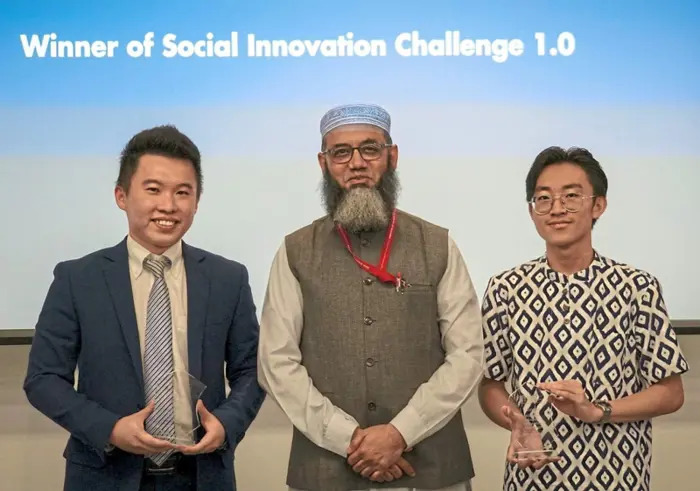A TECH solution to enhance transparency and traceability within the upstream palm oil supply chain is in the pipeline.
The Social Innovation Challenge (SIC) winning team comprising Wei Jie See, Kaywen Zhen and Arinn Danish will be developing their innovation with a seed capital of RM20,000, courtesy of the Innovation & Entrepreneurship Center (IEC) and the Center of Sustainable Small-owners (CSS) at the Asia School of Business (ASB).
The SIC, a dynamic competition designed for students, alumni and invited participants, was focused on action-based challenges to tackle pressing global issues.
Aimed at addressing critical issues within the palm oil industry, particularly in Malaysia, the inaugural challenge centred around the Collection Center First Mile Traceability Challenge.
The palm oil industry plays a pivotal role in global food and industrial markets but faces challenges such as incomplete traceability to plantations and inefficient data management practices.
These issues pose significant threats, including reputational risks and regulatory non-compliance, necessitating urgent solutions.
“We are excited to embark on this journey towards creating a more sustainable and transparent palm oil industry.
“By leveraging technology and working closely with small-holder farmers and the collection centres, we aim to increase yield and promote responsible production practices,” said Wei Jie, spokesperson for the winning team which comprised students from ASB, Universiti Tenaga Nasional and IMU University.
The team will be collaborating with small-holder farmers in Batu Pahat, Johor, on the project, a press release from ASB dated May 6 read.
IEC assistant director Dr Siti Najaa Zulkifli said the SIC embodied ASB’s mission to empower students to make a real impact in their communities and beyond.
“It’s all about inspiring positive change.
“The SIC champions innovation, collaboration and practical application, aligning seamlessly with ASB’s commitment to experiential learning for a comprehensive educational experience.
“We are incredibly proud of the creativity and dedication demonstrated by everyone,” she said.
For the palm oil industry, said CSS director Prof Dr Asad Ata, addressing challenges related to traceability and data management is crucial.
“By doing so, we can enhance transparency, strengthen accountability and reaffirm our commitment to sustainable practices. Together, we can build a more resilient and ethical supply chain,” he said.
Originally published by The Star.





